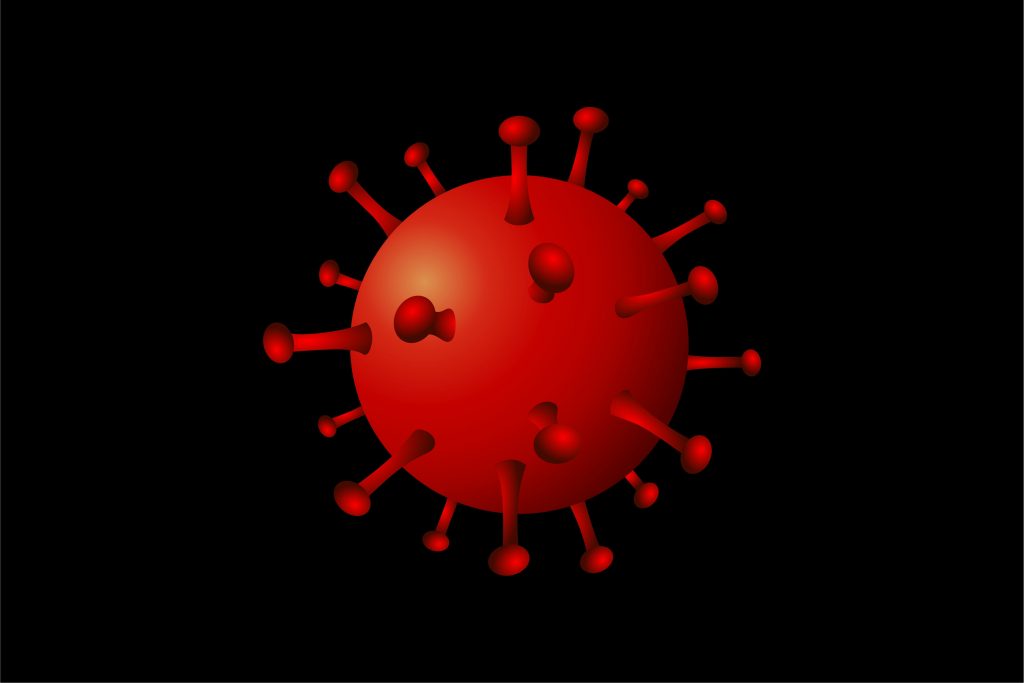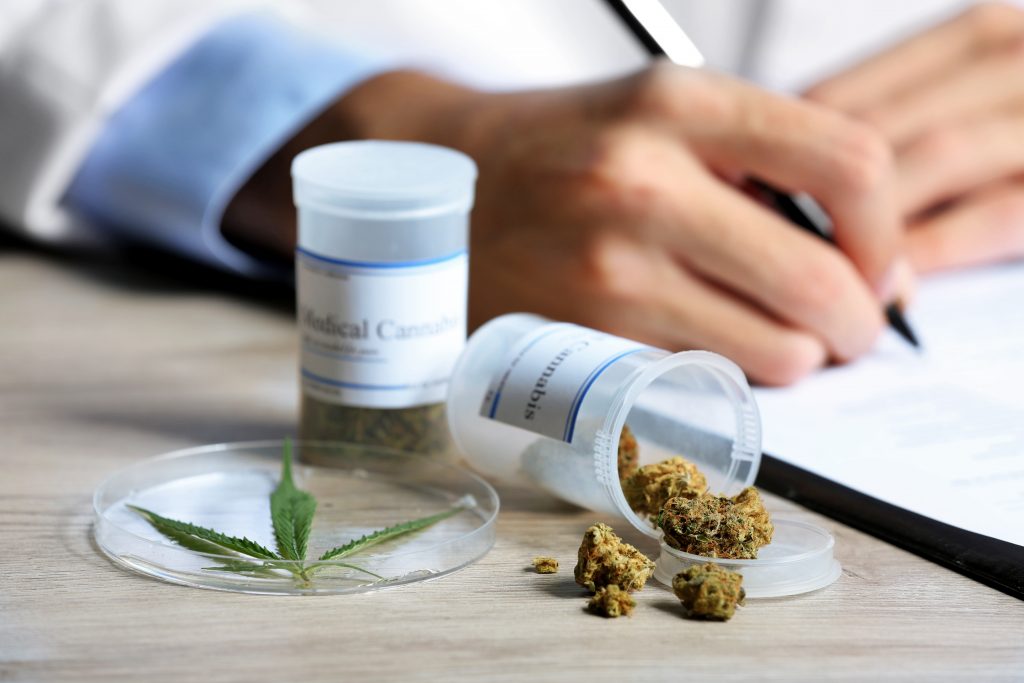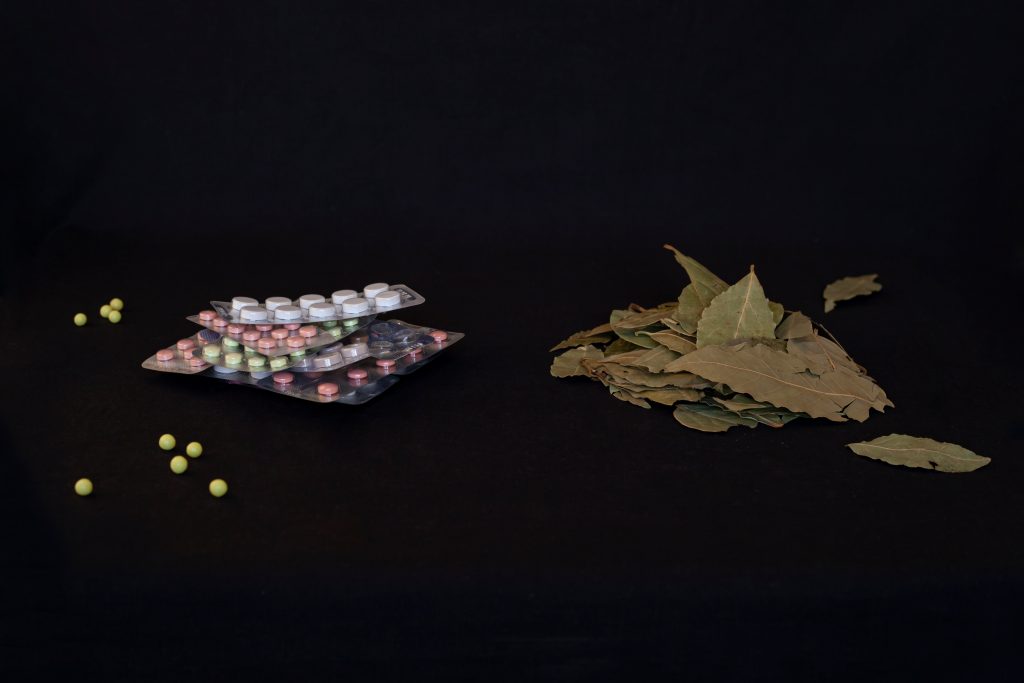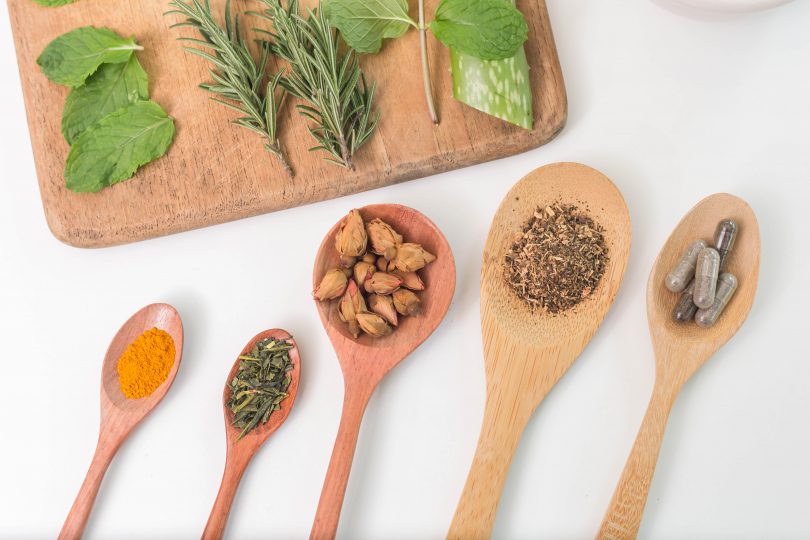You’ve seen the headlines at this point, everyone has. It’s the new rage in covid-related discussions, and the talk at every party. That’s right, it finally broke that cannabis might be able to be used against covid-19, the pandemic that’s got everyone riled up. But shouldn’t we already know this? Why is this even news? And how far have we gotten from out nature roots that these headlines draw such awe and confusion? When it comes to cannabis and covid, it’s a great time to remember that plants are extremely important, and Eastern medicine traditions that use them, should never be ignored.
Who’d have thought cannabis could be useful for covid? Well, honestly, anyone paying attention. But we’re not a world that does, and so though cannabis (and other plants) that might be/are useful against covid and other coronaviruses, big pharma will push pharmaceuticals instead. Luckily, you can access cannabis on your own to get those antimicrobial benefits, and we’ve got tons of products to get you on your way. Check out the THC Weekly Newsletter for all the most relevant news and industry stories, as well as some pretty sweet deals on flowers, vapes, edibles, and other products. We can offer huge savings on Delta 8, Delta 9 THC, Delta-10 THC, THCO, THCV, THCP & HHC products. Check out our deals in our “Best-of” lists!
What is covid-19
Technically, we should all have a working definition of what this is, but I want to go over some basic information on it anyway. To start with, Covid-19, also known as ‘severe acute respiratory syndrome coronavirus 2’ or SARS-CoV-2, is a virus of the Coronaviridae family, under the sub-heading of Orthocoronavirinae.
While it’s often called ‘novel’, this is strange terminology, as many of the dozens* (yes, dozens) of yearly viruses that come through each year, are new. Yet we don’t talk about the ‘novel flu virus’ every year. Beyond that, coronaviruses are not novel in the least. For example, we’re all familiar with the much more deadly SARS of a few years ago, which though being way more dangerous, didn’t seem to require the world to stand still.
And beyond that, coronaviruses have been known about for decades, with the terminology first used in 1968 by June Almeida and David Tyrrell who were two of the first to study coronaviruses in humans. In fact, the name ‘coronavirus’ was officially instituted in 1971 by the then-named International Committee for the Nomenclature of Viruses, now called the International Committee on Taxonomy of Viruses. Though this is where terminology came from, noted cases go back as far as the 1920’s. While the covid-19 strain might be new, coronaviruses are not, and the term ‘novel’ seems way more about building hype, than promoting accuracy.

Is this really a massive issue, or hype?
How common are they? As of 2020, there were 45 different species within this category. In fact, the first ones to be studied, were common cold viruses. Coronaviruses make up approximately 15% of common colds. Obviously, the viruses therefore have a range in their destructiveness, as we already stated that SARS is a coronavirus. SARS has been noted to have up to an 11% fatality rate. Weirdly – or for marketing purposes, agencies like WHO have decreased that percentage to 3%, though this contradicts the papers written at the time, the known understanding at the time, and seems to be a way to promote the reaction to a less serious virus, being this extreme.
We could debate forever about how deadly covid-19 actually is. We never got to the point of seeing bodies in the street, or watching people fall down dead, and this should be remembered. Nor is there a hole in society from all the deaths. Large death tolls are always noticeable. There might have been complaints about shortages of beds, but that’s a yearly occurrence more based on the occupancy required to run a hospital being high (80% minimum in the US), which doesn’t leave much room for any wintertime illness issues. And maybe best to keep in mind we’re warned about overfilled hospitals pretty much every year! Seriously, here are comparable complaints from 2019, 2018, and 2017.
When looking at global death rates, 2020 does not stand out as a ‘problem’ and goes in line with a general yearly increase, likely due to population increases. These increases can be seen in about the same general ratio every year for decades. Weirdly enough, though I used to be able to find statistics specifically for yearly wintertime illness deaths, those same sources seem to have been deleted from the internet.
Cannabis antimicrobial properties
What does ‘antimicrobial’ mean? It means the ability to fight ‘bad microbes’ or microorganisms, which are comprised of viruses, bacteria, fungi, and parasites. Let’s remember that cannabis is already studied heavily for its antimicrobial properties, and that automatically makes it a possible candidate to work against covid. Cannabis can fight bacteria, viruses, fungi and parasites.
So, what does antimicrobial resistance mean (the most common form spoken about is antibiotic-resistance)? It means when a standard medicine can no longer treat the bacteria, viruses, fungi, or parasites. Why does this happen? These microbes have the ability to mutate over time, and this allows them to change themselves to not be affected by medications like antibiotics, antivirals, antifungals, and anti-parasitics.
In terms of viruses, cannabis has already been studied quite a bit for antiviral properties, with tons of research pointing to its effectiveness for treating viruses, possibly even covid. Like this 2017 study called Potential of Cannabidiol for the Treatment of Viral Hepatitis where CBD was shown to inhibit hepatitis C replication by 86.4%. Or this study from 2020, An investigation on antiviral activity of extracts against in ovo Cannabis sativa Newcastle Disease Virus (NDV), which states: “There is significant antiviral activity of Cannabis sativa plant extracts against Newcastle virus (<0.05)”.

Or this one from 2004: Delta-9 tetrahydrocannabinol (THC) inhibits lytic replication of gamma oncogenic herpesviruses in vitro, where it was found that “Micromolar concentrations of THC inhibit KSHV (Kaposi’s Sarcoma Associated Herpesvirus) and EBV (Epstein-Barr virus) reactivation in virus infected/immortalized B cells. THC also strongly inhibits lytic replication of MHV 68 (murine gamma herpesvirus 68) and HVS (herpes simplex type 1) in vitro.”
Why Eastern medicine should never be ignored
Eastern medicine traditions are natural medicine traditions. These encompass everything outside of the new-age Western pharmaceuticals market. And as different cultures throughout history have nearly always had some form of medical treatments, these traditions can be seen throughout millennia of time, and across the world. Obviously, these traditions vary between cultures, as there would have been absolutely no communication between time periods and places, most of the time. What this means is when something repeatedly comes up as being effective across time periods and cultures (or ineffective, or dangerous, or particularly awesome), it should be paid attention to. That is the exact opposite of what goes on today.
Two of the more famous traditions are Ayurvedic medicine out of India, and Traditional Chinese Medicine (TCM) out of China. Cannabis has been a part of Ayurvedic medicine since 1,000 BC, used as an antibiotic, specifically for skin infections and afflictions like tuberculosis. So to make this clear, it was understood1,000 years before the time of Jesus Christ, that cannabis could be used to kill bacterial infections. And yet here we are treating it like this is a new invention.
What about TCM? While much in the world of TCM has not been published, this isn’t because the texts don’t exist, as these natural medicine traditions were excellent at documenting literally everything – good and bad. Many sites actually cite the lack of translations to languages like English as the reason, but I’m personally skeptical of this explanation as there are more than enough people in this big wide world interested in these traditions, and no shortage of ability for translation.
I expect the lack of public appearance has more to do with a specific interest in keeping it away from consumers. And lets be honest, if we’re having a conversation about new headlines screaming the ability of cannabis to help with covid, it means this information has been woefully misunderstood – or lost – by the masses, who are happy buying big pharma medicine, instead of using a plant, regardless of how little pharmaceuticals often work, and how dangerous they can be.
Cannabis has been a part of TCM for at least 1,800 years, with some saying it likely goes back as far as 4,000, when all that info is actually looked at. I don’t know whether to call it ‘funny’ or ‘sad’ that this information has been known for literally thousands of years, and the general public is currently unaware of these uses. Instead of paying attention to history, doctors of today have been taught to uniformly reject Eastern medicine in favor of big pharma and feeding people synthetic chemicals. And while Western medicine continuously tries to rewrite the narrative, people aren’t getting the treatments that could actually help them.

A little on plant medicine
Why are plant compounds so good at fighting nearly any kind of infection? Because these compounds are the plant’s own defenses against the very same things. Plants can get bacterial infections, viral infections, fungal infections, and be attacked by parasites. These compounds – varying as they are between plants, are there to fight these microbes, and they do the same in people.
And this isn’t unknown, not in the least. In fact, it’s so widely known, that pharmaceutical companies base their medications off the structures of these compounds. Why do they do this instead of just selling the plant compounds? Because they legally can’t. A plant compound can’t be patented if found in nature, only if its created, or cultivated specifically. So while pharma companies base many of their medicines on existing compounds that they cannot directly patent, they leave out that the plant itself is medicine.
I am, of course, talking about ‘plants’, not specifically ‘cannabis’ as cannabis is just a representative of the plant world. Tons of other plants have just-as-strong, or stronger compounds when it comes to fighting infection. Take for example this 2012 study which tested several essential oils on one of the hardest to kill bacterial infections, Staphylococcus aureus. Cassia, red thyme and Peru balsam showed to be most powerful in this study. The study authors also pointed out how tea tree, thyme, and peppermint had been shown useful at cutting through MRSA biofilms, another major issue in antibiotic resistance.
Now consider that back in 2005, during a separate outbreak of a coronavirus (because there are so many), testing was done on more than 200 herbs used in TCM, with four showing antiviral activity strong enough for results: A. annua (Sweet wormwood), L. radiata (Red spider lily), P. lingua, and L. aggregata. The study authors stated: “The results from our study provide strong support for the usage of these herbs to treat SARS-CoV infectious diseases. Our results also demonstrated that lycorine (alkaloid found in many plants) is a good candidate for the development of new antiviral medicine.” Yet nothing of this was spoken about when covid-19 came out…or even now two years later.
Interesting trivia, did you know one of the things noticed during the 1918 Spanish Flu pandemic was that people working in cinnamon factories were unaffected, or sick to a much lesser degree? This was the early 1900’s, so while I can link to mentions, the story can only (admittedly) be considered rumor as it can’t be backed up. But it shows up in many places, and as cinnamon was/is used to fight many ailments, this isn’t shocking. And a great example of the power of plants.
One thing to remember, is that Western medicine antimicrobials are more simple than plant compounds, which allow microbes to more easily change to counter them. As plant compounds are much more complicated, this resistance has not been shown to be built, meaning not only can plants offer many answers, but these answers aren’t impeded by being used frequently. And this is a major benefit to the microbial resistance established by pharmaceuticals.

Conclusion
If the public thinks that the idea of a plant like cannabis being able to treat something like covid is new, the public is painfully mistaken. Just to make this 100% clear, two years into what is being touted as a horrible pandemic, the public is still gleefully unaware that plants have already been tested (17 years ago!!) and found useful for corona viruses. So yes, cannabis is likely to have an effect on covid, but its an embarrassment to society today that this isn’t known or expected.
If the public wants better answers to medical issues, it should remember that Eastern medicine should not be ignored. Or the Western medicine that backs it up.
Welcome to CBDtesters.co, the best web source for all the most recent and important cannabis and psychedelics-related news in the world today. Stop by frequently to stay on-top of the ever-expansive universe of legal drugs and industrial hemp, and check out The THC Weekly Newsletter, so you can join the conversation, anywhere you are.
Disclaimer: Hi, I’m a researcher and writer. I’m not a doctor, lawyer, or businessperson. All information in my articles is sourced and referenced, and all opinions stated are mine. I am not giving anyone advice, and though I am more than happy to discuss topics, should someone have a further question or concern, they should seek guidance from a relevant professional.









